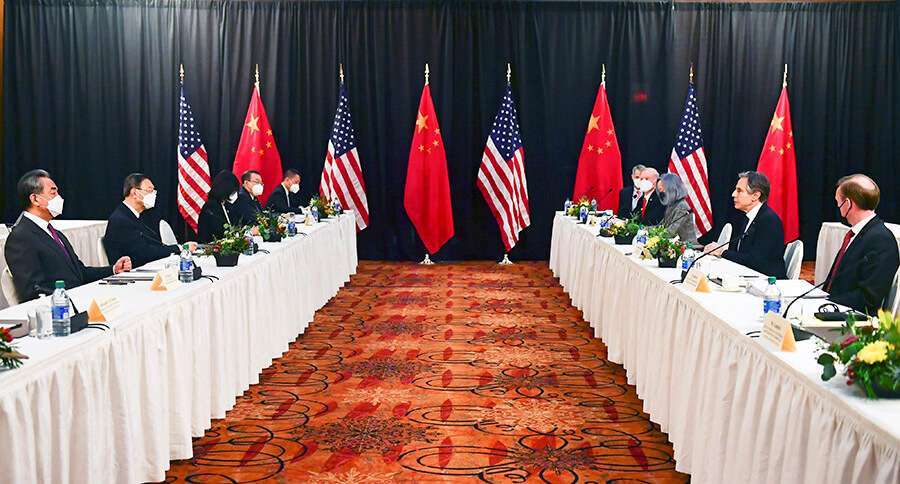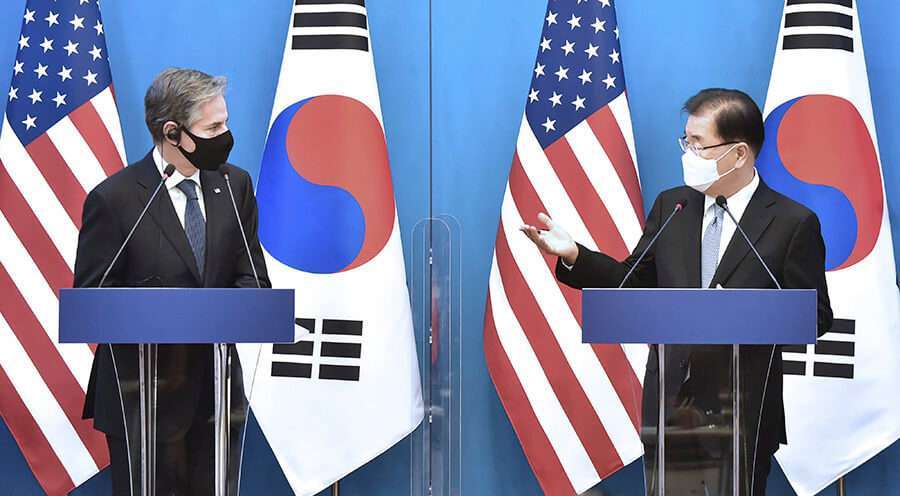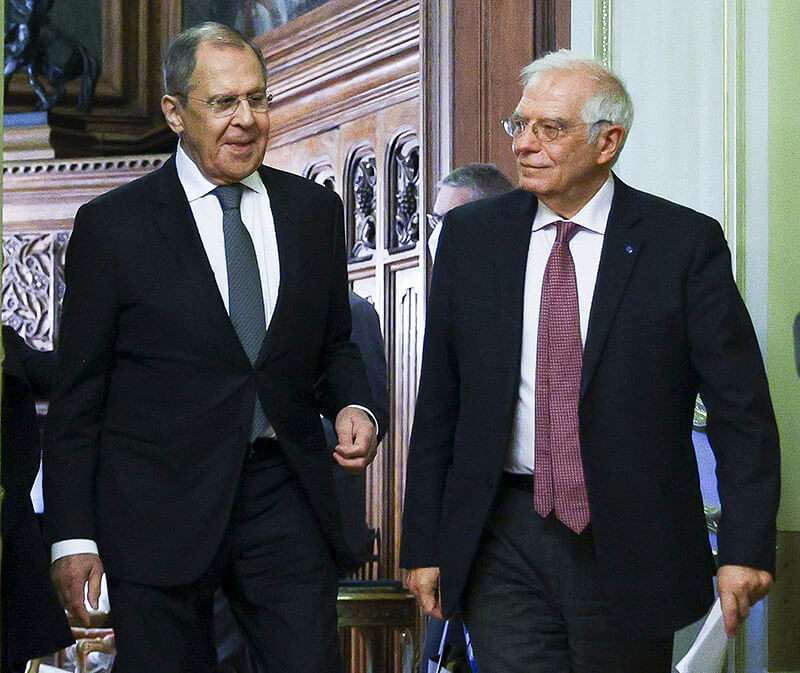Cold War in the 21st century: China and Russia form a common front against Western sanctions

A new 21st century-style Cold War is brewing. The two blocs are clearly marked. On the one hand, the United States and its loyal ally the European Union, and on the other, Russia and China, which have decided to join forces to confront Western sanctions. The new Biden administration, which seemed to offer a horizon of diplomatic calm, has given no respite and has provoked a geopolitical whirlwind.
It has taken less than three months for US President Joe Biden to enter into disputes with two of the world's major powers: China and Russia. The Biden administration's first clash with the Asian giant came during the first high-level summit between diplomats from the two countries, which from the outset turned into an unprecedented exchange of accusations.
Right at the start of the meeting, the first since Joe Biden's arrival at the White House, US Secretary of State Tony Blinken wasted no time in openly accusing Beijing of carrying out cyberattacks and violating the rights of the Muslim minority in the province of Xinjiang, the people of Tibet and the inhabitants of the city of Hong Kong and Taiwan.

The Chinese representatives also refused to be swayed and categorically replied that "it is important for the United States to stop promoting its democracy in the rest of the world", and stressed that "the United States does not represent the world". In addition, China brought up the Black Lives Matter movement and the race riots that took place last year in the US: "Many people in the US have little confidence in US democracy". "We do not believe in invasions with the use of force, the overthrow of other regimes and massacres of people from other countries," stressed Chinese Communist Party Politburo member Wang Yi.
Prior to this meeting, the United States had toured several Asian countries, such as Japan and South Korea, habitual allies of the US, to promote the creation of a common front against China. In addition, the US imposed sanctions on 24 Chinese and Hong Kong officials because of Beijing's repression of political freedoms in the semi-autonomous region of China.

The imposition of sanctions on China has also been joined by the European Union, the United Kingdom, Canada, Australia and New Zealand. The EU has invoked the violation of the human rights of the Uighurs, a Muslim minority living in the autonomous region of Xinjiang. The sanctions affect four senior officials and one entity held responsible for the violation of these fundamental rights. "Large-scale arbitrary detentions" were one of the reasons for the EU's decision.
Beijing, too, has retaliated against the EU and has responded with sanctions against 10 European citizens, five of them legislators, and four institutions. It has also summoned EU ambassador Nicolas Chapuis and British ambassador Caroline Wilson to protest against what it considers to be "lies" and "false information" about the situation in Xinjiang.

The rivalry between Russia and the United States is historic, but never before has an American president directly accused the Kremlin leader of being a "murderer". Joe Biden, during an interview, answered without hesitation that he believed Vladimir Putin to be a murderer. To which the Kremlin leader, as if it were child's play, replied: "I wish him good health". The European Union is not in the best of times in terms of its relationship with Russia either, and has imposed sanctions against the Kremlin, due to the imprisonment of the Russian opposition leader Alexei Navalny.
These sanctions consist of a ban on entry to the territory of the EU and the freezing of assets and property held in the area by four people directly related to the arrest of Alexei Navalny. Following Brussels, Washington also decreed sanctions against Russia for the persecution of the opposition leader, the repression of his supporters and the violation of human rights. It also added the poisoning he suffered in August 2020, a detail that the European Union did not expressly mention.
In the face of this situation, both China and Russia have decided to join forces and form a common front against Western sanctions. At a joint press conference in the southern city of Guilin, Russian Foreign Minister Sergei Lavrov and Chinese Foreign Minister Wang Yi issued a joint statement calling for a summit of the five permanent members of the UN Security Council to resolve the "common problems of humanity". After two days of meetings, and at such a turbulent time for international diplomacy, the respective foreign ministers, Wang Yi and Sergei Lavrov, have accused Washington of interference and of wanting to "create new closed alliances" similar to those of the Cold War era.

US President Joe Biden's increasingly harsh tone towards Russia and China may also stem from the suspicions still hanging over his son, Hunter Biden, that he conducted shady business dealings in both Ukraine and China when his father was US Vice President during Barack Obama's presidency. Hunter Biden took a paid position at Burisma Holdings in April 2014. The company's founder was a political ally of Viktor Yanukovych, Ukraine's president at the time, who was close to Russia.
Donald Trump used this information during the election campaign to tarnish the image of his then rival, and asked his Ukrainian counterpart, Vladimir Zelenski, to open an investigation into the Biden family. So far there is no evidence of irregularities.
Tensions between the two blocs could have a decisive impact on the EU. The disagreements with China come less than three months after the two concluded seven years of negotiations with the signing of a long-anticipated investment agreement that could be severely damaged by the imposition of sanctions on the Asian giant.

As for Russia, Washington's pressure on European governments affects Germany in particular. The US will not allow the development of the Nord Stream 2 pipeline, which will transport Russian gas to Europe. But Berlin refuses to abandon Nord Stream 2. German Foreign Minister Heiko Maas insists that the project is a private and not a political matter.
The imposition of sanctions by the West has led to further polarisation between the different 'blocs' that is expected to continue to escalate, creating a new Cold War situation through trade wars, technology wars and economic sanctions.










